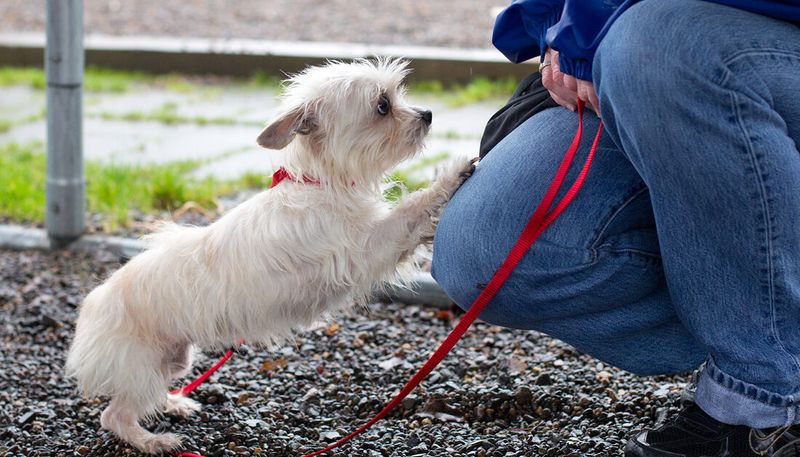Bringing a furry friend into your Oregon home is an exciting adventure, but navigating state regulations can feel like solving a tricky puzzle.
Understanding the legal requirements ahead of time can save you a lot of stress—whether you’re adopting from a shelter or choosing a specific breed.
By following Oregon’s guidelines, you’ll ensure your new dog gets the best start to their new life with you!
1. Understand Oregon’s Adoption Laws

Adopting a pet in Oregon isn’t a walk in the park! Most shelters require a 72-hour waiting period before finalizing adoptions, giving you time to prepare and them time to verify you’re not making an impulsive decision.
I nearly lost my chance at adopting my Border Collie mix because I hadn’t brought proper ID. Always carry your driver’s license and proof of residence—a utility bill works perfectly. Shelters must also provide you with the animal’s health history and vaccination records.
Most adoption fees range from $100-300, covering initial vaccines, spay/neuter procedures, and sometimes microchipping. This upfront cost actually saves you money compared to handling these essentials separately.
2. Be Prepared for the Dog License Requirement

Surprise! Your new pooch needs their own Oregon ID card. Every county requires dogs over six months old to be licensed within 30 days of adoption. Fees typically range from $25-$50 annually, with discounts for spayed/neutered pets.
Getting caught without a license can lead to fines starting at $100. When my neighbor’s unlicensed Retriever escaped, they faced not only the stress of a missing dog but also hefty penalties.
The licensing process is simple—just submit proof of rabies vaccination, complete a form, and pay the fee. Many counties now offer online applications. And don’t forget: licenses need to be renewed yearly, though Multnomah County offers convenient multi-year options.
3. Know the Leash Laws

Freedom in Oregon comes with a catch—specifically, a six-foot leash. Most public places require dogs to be leashed at all times, and violations can cost up to $250. Portland’s dog parks are the main exception, offering fenced-in freedom for your pup to roam.
Also, electronic collars don’t count as restraints under most county rules. I learned this the hard way when my well-trained Shepherd responded perfectly to her e-collar commands but still ended up with a citation at Forest Park.
There are some exceptions for voice control in designated off-leash areas and on private property. Always double-check local regulations before you take that leash off—rules can vary between Portland, Eugene, Bend, and the coastal towns.
4. Microchipping is Highly Recommended

Lost dogs tell no tales—but microchips do! While not legally mandated statewide, microchipping has become standard practice at Oregon shelters. This rice-sized transponder, implanted between your dog’s shoulder blades, stores a unique ID number linked to your contact information.
The procedure costs $25-50 and lasts a lifetime. When my Terrier bolted during Fourth of July fireworks, his microchip reunited us within hours—worth every penny!
Remember that implanting the chip is just step one. You must register it with a recovery database and keep your contact information current. Many veterinarians and shelters offer registration assistance, ensuring your pet has a ticket home if they ever wander off.
5. Comply with Breed-Specific Legislation (BSL)

Some Oregon communities have breed-specific rules targeting dogs like pit bulls, rottweilers, and German shepherds. These regulations might require special insurance, muzzling in public, or stricter containment systems.
Before adopting, it’s a good idea to check your city’s ordinances and landlord policies. While Portland got rid of breed-specific legislation (BSL) in 2014, smaller towns may still have restrictions in place. Even your homeowners insurance can be impacted—I had to change providers after adopting my American Staffordshire mix.
If you’re set on a restricted breed, look into BSL-free areas like Portland or Eugene, or be ready to show proof of your dog’s good behavior from trainers or previous owners. After all, responsible ownership is far more important than breed stereotypes!
